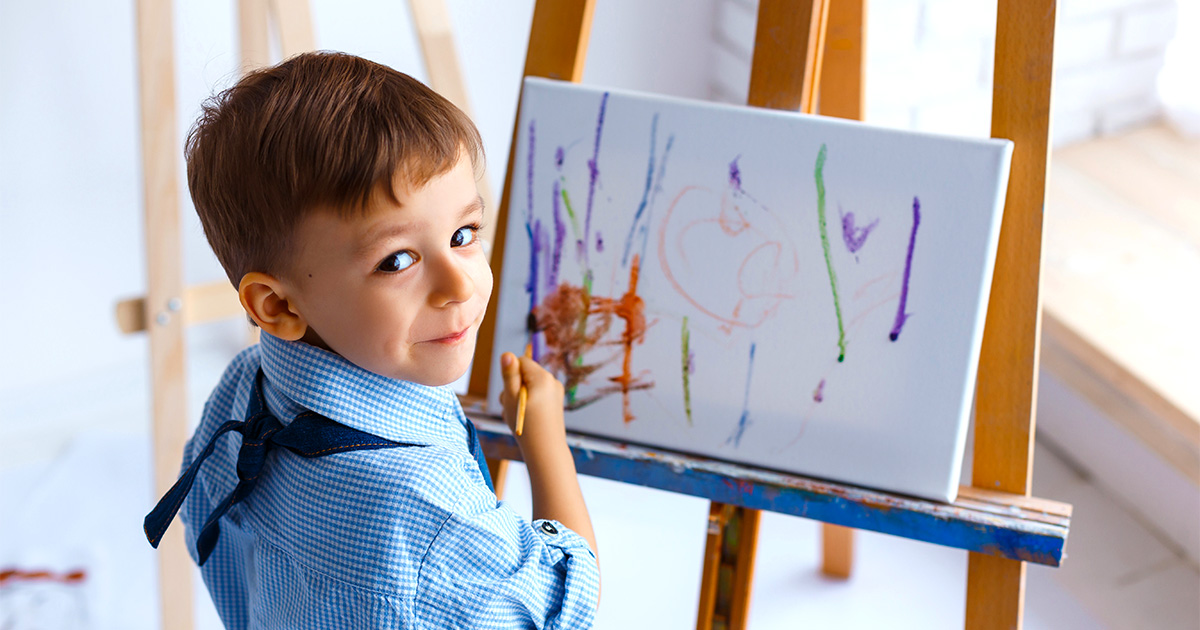- 877.684.1613
- Schedule a Tour

What does it look like and how can you support your child during every season?
What is early childhood mental health?
Children are constantly developing. Their brains are taking in an immense amount of information during their early years of life. Children’s environments, social interactions, and discoveries are shaping their development each day. Because their brains are constantly developing, they respond differently than adults to stressful situations. Helping your child cope and supporting them through tough times is important to maintaining healthy brain development.
How can you support your child’s mental health?
There are two big ways to support positive mental health in your child’s early years. One is through creating an environment conducive to learning and developing. The other is by providing positive interactions as they explore that environment. It’s important to ensure they’re given opportunities for open-ended exploration, problem-solving, and fun! Encourage them and offer positive feedback along the way.
Structure their learning environment to include:
- Easy access to open-ended play materials (ex: art supplies, blocks, books, etc.)
- Space for independent play
- Space for calm-down activities or quiet play
As they explore and discover, encourage them with phrases such as:
- “This area looks so beautiful since you put your toys back in the basket.”
- “Wow! Look at how hard you worked to build that tower.”
- “I love the way you kept trying to put that puzzle piece in the puzzle, you didn’t give up!”
Being present, engaging, and encouraging are key components to ensuring your child’s mental health remains positive and sets them up for a successful future.
What does it look like when a child is stressed or has a disruption in their mental health?
First, pay attention to their behavior. Signs of stress may not be readily apparent because a child’s ability to verbalize their feelings varies. The signs of stress can appear for a brief period or last for longer periods. You may observe any number of the following changes:
- Changes in eating, sleeping, or bathroom habits
- Increased separation anxiety from parents or teachers
- Bad dreams or crying spells
- Nail-biting, thumb-sucking, or hair-pulling
- Feeling sick (ex: headaches or upset stomach)
- Chewing on clothing or other items
- Wanting to be alone or withdrawn from others
- Increased aggressive behavior or acting out
- Pretend play themes may be related to the current situation
What can you do to support your child during a stressful situation?
Now that we know what to look out for, you can support children by sharing and teaching them ways to cope with stress, such as:
- Encourage children to express their feelings. Allow them to feel and be in whatever mood they wish. Let them know it is okay to feel the way they do. Allow for quiet alone time.
- Try to lower expectations and avoid putting children under too much pressure.
- Offer children proper nutrition and plenty of rest. Engage in relaxation exercises and mindfulness practices such as breathing, stretching, or listening to soothing music to ease tension.
- Use books as a way for children to see characters in stressful situations and learn to cope.
- Avoid “busy” schedules but try to be consistent and maintain your daily routines. Children feel safe and secure when their normal routines remain the same.
- Encourage drawing and writing. Children will be able to express their feelings through journaling or drawing pictures. Encourage children to add faces that express them being “happy, sad, or worried, etc.”
- Encourage movement, dancing, and physical exercises. Impromptu dance parties are a great way to get moving! Physical activity decreases stress.
- Encourage puppet play. Children will be able to create a reality they can control and recreate stressful events in such a way they can manage.
Mental health in early childhood can set the stage for children’s lives in the future. Equipping yourself and your children with ways to manage stress will help prepare them to navigate the early years and beyond with confidence.
